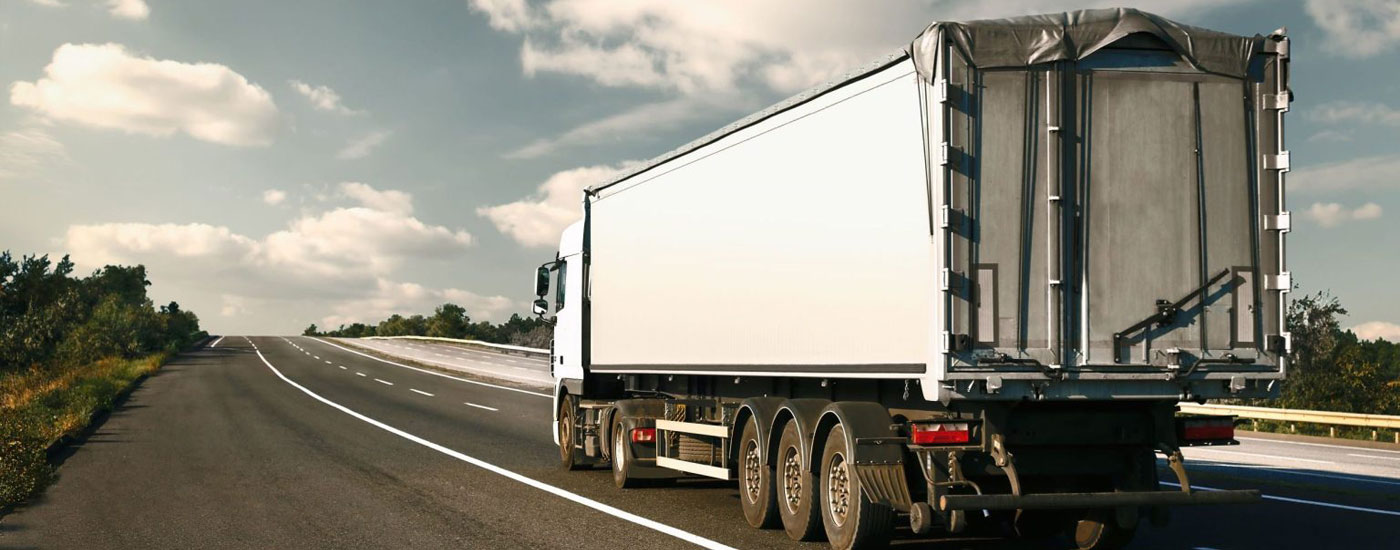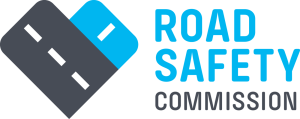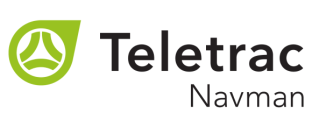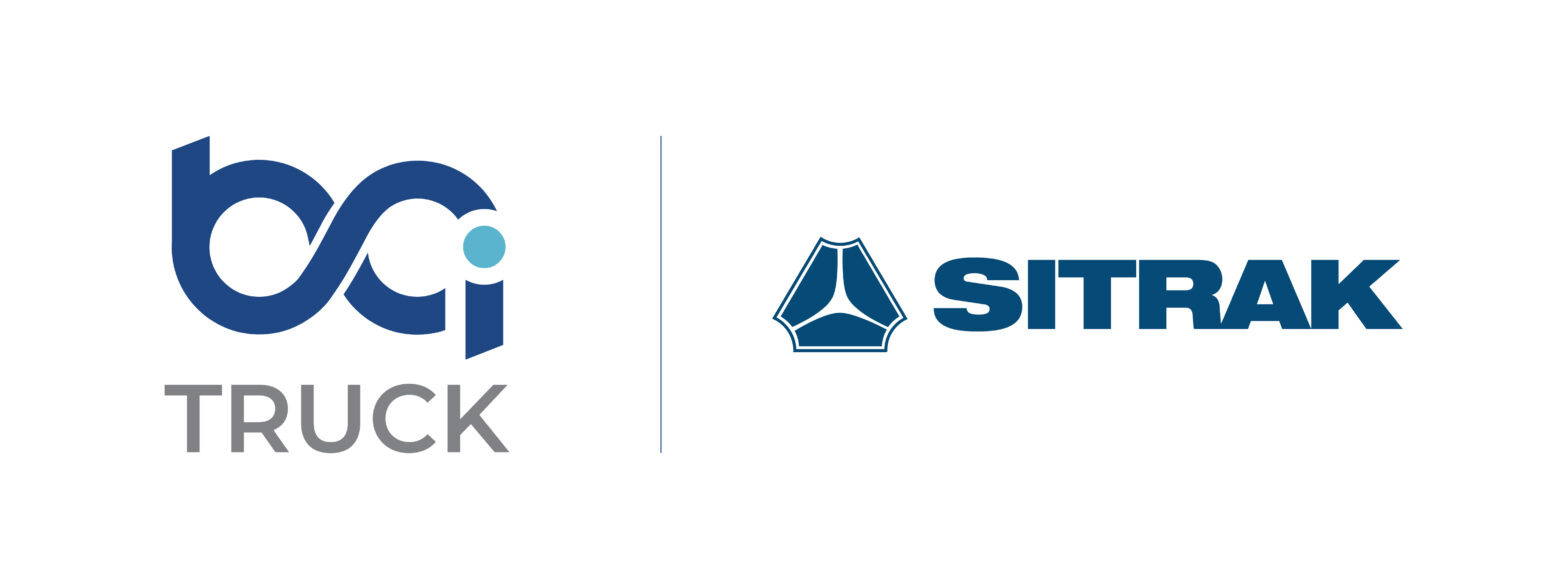The 32nd & 33rd TRANSAFE WA Road Transport Industry Safety Forum WRAP UP! – May 2025
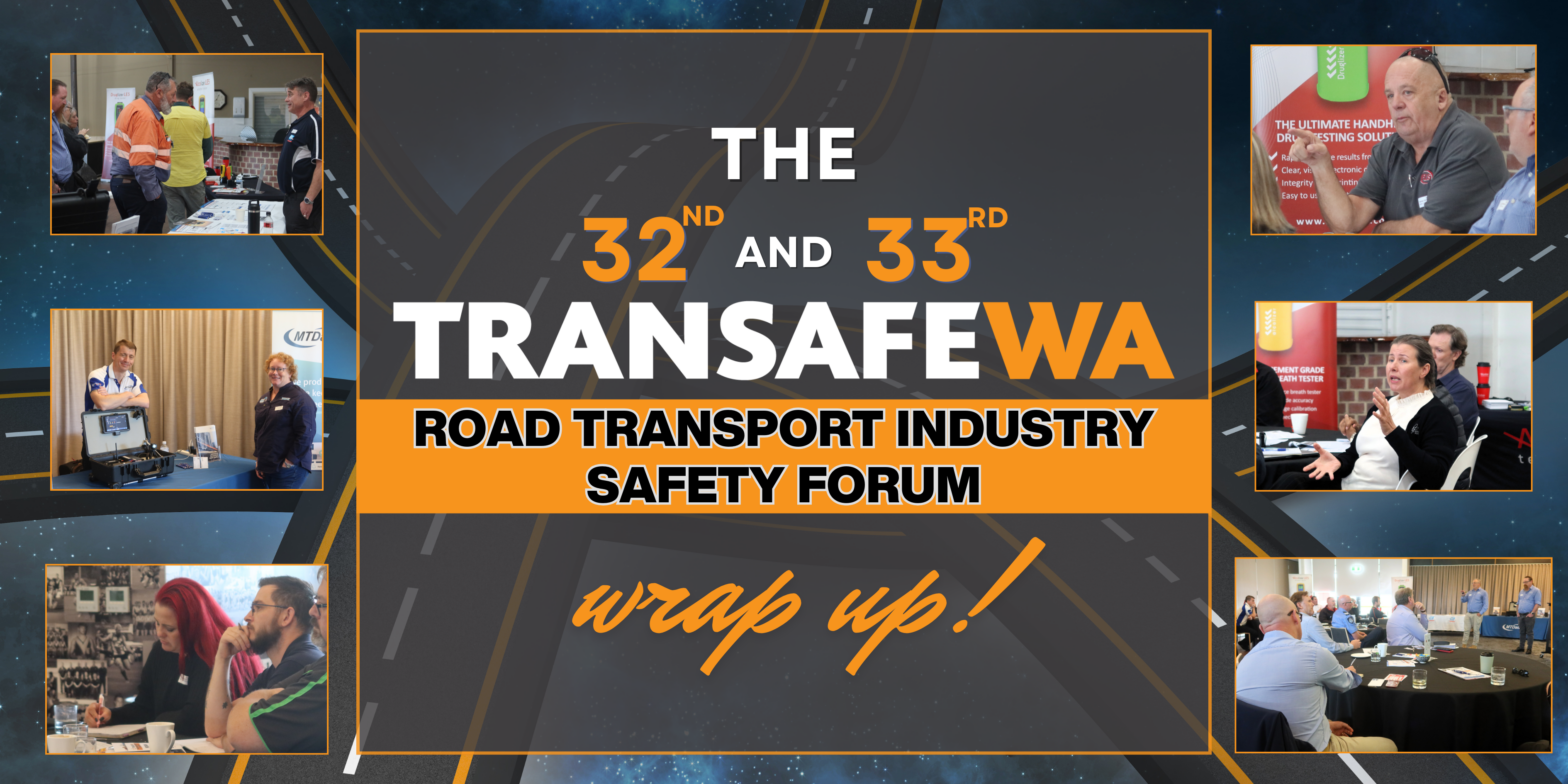
TRANSAFE WA recently wrapped up its 32nd and 33rd Road Transport Industry Safety Forums, held in Albany on the 6th of May and Esperance on the 8th. The forums brought together key voices from government, transport operators, and the local community to tackle one shared priority — safety on our roads, especially when it comes to heavy vehicles.
Each forum opened the floor to robust discussion, with attendees raising questions and sharing concerns about the real challenges faced by those who live and work in the transport industry. From infrastructure to enforcement, from training to road etiquette, it was clear that safety is everyone’s business.
Notably, the conversations around caravan safety sparked strong interest. Many transport professionals expressed growing concern about caravan drivers lacking proper towing skills — a risk not only to themselves, but to others on the road.
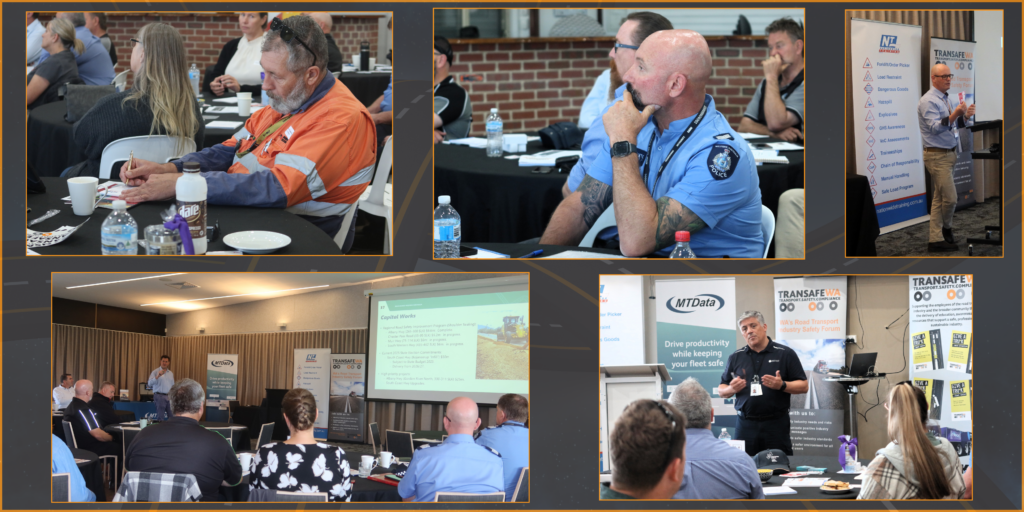
The forums also offered attendees a rare chance to engage directly with representatives from Main Roads WA, WA Police, the Department of Transport, and DEMIRS — a valuable opportunity to ask questions that often go unheard.
The quality of dialogue, openness of the discussion, and relevance of the topics made both events a valuable and worthwhile gathering for the industry.
Special thanks go to our forum sponsors. Your contributions help us continue delivering meaningful safety events for the industry and community.
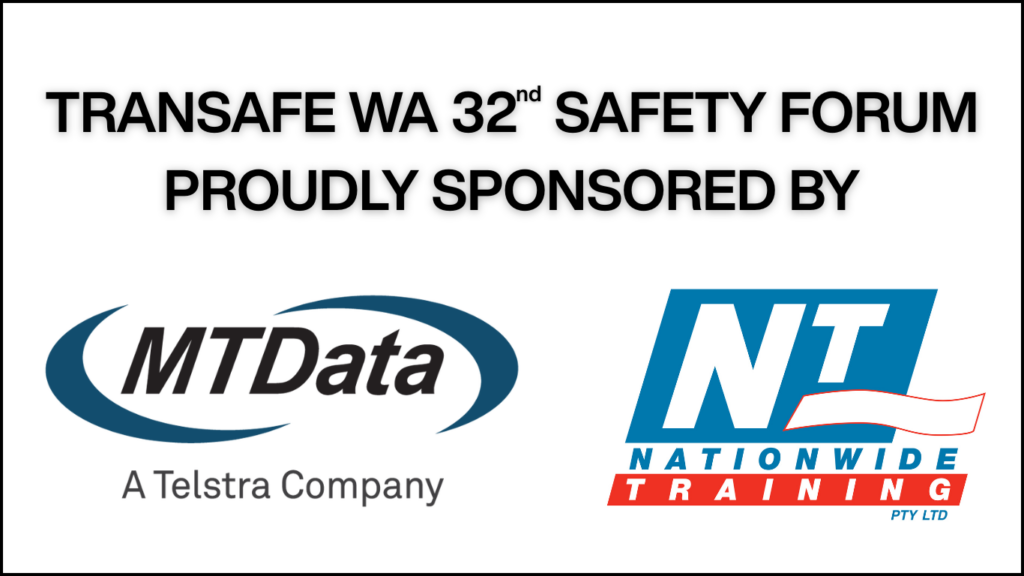
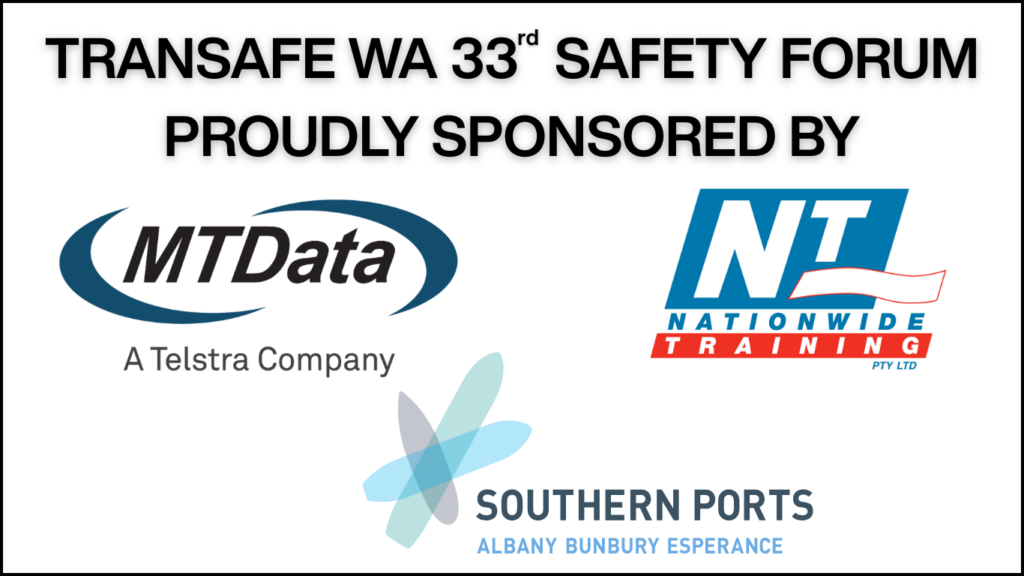
A heartfelt thank you to all who took part — our presenters, participants, and supporters. These forums are proof that when we come together, we move forward!

Chain of Responsibility: Understanding Legal Obligations Across the Transport Chain
Presented by Gavin Trim, Chief Executive Officer
Gavin Trim delivered a comprehensive session on Chain of Responsibility (CoR) legislation, clearly outlining how legal accountability extends beyond drivers to include everyone in the transport chain—such as consignors, operators, loaders, schedulers, and senior managers. He provided clarity around enforcement protocols, breach categories, and the shared obligation to take reasonable steps to manage risk and uphold compliance. The presentation strongly emphasised that proactive, preventative action is far more effective—and far less costly—than reacting to breaches after the fact. During networking breaks, attendees had the opportunity to speak directly with Gavin and ask follow-up questions. They were also invited to take home complimentary educational posters covering vital topics such as vehicle dimensions, axle weights, and load restraints, providing practical tools to support compliance within their own operations.

Infrastructure & Heavy Vehicle Initiatives
Presented by Andrew Duffield, Director – Great Southern Region
Main Roads WA’s Great Southern Region Director Andrew Duffield, presented a comprehensive update on the condition, challenges, and ongoing development of the regional road network. With an average pavement age of 49 years and over 60% of roads exceeding their design life, the region faces significant funding and resilience pressures. The presentation highlighted key infrastructure projects such as the completed Albany Ring Road and upcoming upgrades including the Menang Drive/Chester Pass Road Flyover and various safety-driven shoulder sealing works. Importantly for the transport sector, the team outlined several heavy vehicle-specific initiatives: new rest areas on Chester Pass Road and South Coast Highway, a toilet installation at Albany Highway (Tunney), and a Road Train Assembly Area development for Menang Drive. Their briefing reinforced Main Roads’ commitment to improving safety, efficiency, and driver amenities across a heavily used and aging network.
View the Presentation: Main Roads WA | Great Southern Region


Improving Road Safety and Compliance Through Driver Behaviour Detection
Presented by James Burton, State Manager
MTData delivered a forward-looking presentation on innovations in telematics technology aimed at enhancing road safety and compliance across transport operations. James Burton, introduced attendees to the evolution of telematics from basic GPS tracking to intelligent systems capable of real-time behaviour detection. A key focus was the MTData 7000AI system—an advanced in-cab solution that alerts drivers to risky behaviours such as distraction and fatigue, while also offering features like pre-start checklists, vehicle inspections, dashcam footage, and tilt detection. These tools support both safety and compliance with modern transport legislation. During networking breaks, attendees had the opportunity to view MTData’s products up close and speak directly with both James and Mark Rodrigues, Senior Account Manager for WA, to ask further questions and explore system capabilities in more detail.


WA Road Policing Division
Presented by Senior Sergeant Tom Stafford, Officer In Charge, Highway Patrol Road Policing Division
Senior Sergeant Tom Stafford delivered an insightful presentation on the strategic direction and operational priorities of the WA Police Force’s Road Policing Division, with a strong focus on regional WA and heavy vehicle safety. He outlined key objectives from the Road Policing Action Plan 2024–2026, targeting life-threatening behaviours such as impaired driving, speeding, mobile phone use, and restraint offences. Emphasising collaboration with partner agencies, Senior Sergeant Stafford discussed the role of new technologies and data in driving intelligence-led enforcement strategies. He provided valuable regional insight into the Goldfields-Esperance Police District — the largest policing jurisdiction in the world — and the unique challenges of policing vast and remote road networks. In Albany, he was joined by local officer Sergeant Derek Grimes, who’s on-the-ground perspective helped contextualise the issues discussed. Together, their presence reinforced the importance of safer vehicles, safer drivers, and safer roads, sparking meaningful discussions about enforcement, road user behaviour, and the realities of regional transport safety.

Building Safety in Growth
Presented by Natalie Eastough, Group Health, Safety and Environment Manager
Natalie Eastough from Southern Ports provided an insightful update on operational activities at the Ports of Albany and Esperance, with a strong focus on safety and infrastructure planning. Her presentation explored how the port manages high volumes of freight movement and heavy vehicle interaction, and the coordination required to maintain safe, efficient operations. Natalie highlighted several key projects, including the berth renewal in Albany and the Hughs Road infrastructure project in Esperance, both critical to supporting future growth and improving freight access. She also informed attendees about changes to the Maritime Security Identification Card (MSIC) application process, ensuring those working in and around port facilities stay compliant with evolving security requirements. Natalie encouraged attendees to engage with Southern Ports, share feedback, and participate in ongoing safety and operational discussions—underscoring the importance of collaboration in managing growing freight demands across the region.

Work Health and Safety on the Road
Presented by David Holmberg, Inspector, WorkSafe Division
David Holmberg, a WorkSafe Inspector with DEMIRS, presented a practical and comprehensive session on the application of Work Health and Safety (WHS) legislation to the transport sector. He reminded attendees that vehicles used for work purposes are considered workplaces under WHS law — meaning all duties of care apply on the road as they do in any fixed workplace. David unpacked key responsibilities for persons conducting a business or undertaking (PCBUs), from ensuring vehicles are properly maintained and safe for purpose, to monitoring driver health and managing risks like fatigue, substance use, and tobacco exposure. He also clarified commercial vehicle requirements under the WHS regulations, including the expectations around fatigue management, licensing, and consultation. His clear and detailed presentation gave attendees the tools to better understand their legal obligations and helped frame safety as not just good practice — but the law.


Road Transport Performance and Risk Management
Presented by Justin Bayles, Road Operations & Projects and Jim Tittensor-Ward, Road Compliance Specialist
The CBH Group presentation provided stakeholders with a confidential overview of post-harvest logistics and ongoing risk mitigation strategies within their road transport operations. Despite road volumes being lower than the previous year, activity was rising as more trucks became available. A major focus of the session was CBH’s Heavy Vehicle Critical Risk Program, which takes a proactive approach to preventing serious incidents like rollovers and crashes. The team highlighted key risk factors including driver distraction, fatigue, mechanical failure, and perceived time pressures — and detailed the multiple controls in place, from dashcams and drug testing to journey management plans, site induction training, and direct driver engagement. CBH reinforced its commitment to safety through performance monitoring, contractor auditing, and collaborative initiatives with transport partners. The presentation reflected CBH’s values of being collaborative, reliable, and respectful — with safety front and centre.

National Heavy Vehicle Driver Competency Framework
Presented by Kriss Logan, Regional Manager
Kriss Logan from the Department of Transport presented on the latest developments in heavy vehicle licensing, as well as the new “Red Plate, One Mate” rules aimed at improving safety and accountability for newly licensed drivers. A key issue raised during the session was the lack of mandated driving experience between licence classes, particularly the fact that a driver can progress from a Heavy Rigid (HR) to a Multi-Combination (MC) licence simply by waiting 12 months — with no requirement to log any actual driving hours during that period. This loophole, where someone could legally upgrade without ever having driven in that time, was a recurring concern voiced by many in the room. Attendees also expressed interest in more structured training pathways, including pilot programs like those being trialled in NSW, which require demonstrated, supervised experience before progression. Kriss Logan’s session underscored the need for licensing reform that balances opportunity with road-readiness and safety.

Traffic Incident Management: What Happens Behind the Scenes
Presented by Ben Doman, Network Operations Manager
Ben Doman provided an insightful presentation on the complexities of managing road closures during unplanned traffic incidents. His session explained the difference between emergency incident response (led by agencies like DFES or Police) and traffic incident management, which is Main Roads’ role in keeping the network moving and minimising disruption. Attendees gained a clearer understanding of how decisions are made in real time—including vehicle control point operations, risk assessments, traffic staging for heavy vehicles, and post-incident recovery. The presentation emphasised the importance of collaboration between agencies and the transport industry to support safety, minimise delays, and protect infrastructure.

Alcohol and Drug Testing in the Workplace
Presented by Nick Fox, Onsite Testing Product Solutions Specialist
Nick Fox brought over three decades of experience to his presentation on alcohol and drug (AOD) testing in the workplace. With a background spanning law enforcement, prosecution, and workplace safety, Nick provided a comprehensive overview of how effective AOD strategies contribute to safer, healthier, and more productive workplaces. He outlined best-practice deterrence frameworks, including policy development, education, and consistent testing procedures such as random, post-incident, and reasonable suspicion testing. Emphasising the need for clearly defined consequences alongside support mechanisms like counselling and rehabilitation, Nick helped demystify testing protocols while reinforcing a fair, transparent approach to managing substance use risk in the transport industry. During the networking breaks, attendees were invited to visit Alcolizer’s booth, where they could view the latest testing products and even experience the process themselves through a swab or breath test, guided by Nick. This hands-on opportunity helped attendees better understand how testing is conducted and the role it plays in workplace safety.

Open Q&A and Operational Overview
Presented by John Pintabona, Manager, Heavy Vehicle Transport Compliance
John Pintabona, provided an overview of HVS operations and their role in regulating and supporting heavy vehicle movements across WA. He then fielded a wide range of questions from attendees — giving voice to real-world frustrations and operational concerns from the transport community. Key issues raised included poor road conditions in regional areas, limited investment in rural infrastructure, challenges communicating with Perth-based staff, and a growing concern around caravan drivers who lack proper towing skills. John’s willingness to engage directly with participants helped bridge the gap between policy and practice, and highlighted the importance of ongoing dialogue between regulators and road users.
Closing Remarks and Looking Ahead

The forums were closed by Rob Sharpe, Executive Officer of TRANSAFE WA, who reinforced the importance of industry collaboration and community engagement in building a safer transport future. Throughout both forums Rob encouraged attendees to share their own stories, challenges, and insights — prompting valuable discussion that reflected the real-world issues faced by those working and living in regional and remote areas.
Looking ahead, Rob shared TRANSAFE WA’s vision for the future, which includes the continued delivery of targeted safety forums, industry-led education programs, and new initiatives that empower road users through awareness, resources, and shared responsibility. There is a strong focus on improving engagement with both government and grassroots communities to drive change where it’s needed most — out on the roads.
With the support of our partners, speakers, and attendees, TRANSAFE WA remains committed to fostering a professional, sustainable, and above all, safe road transport industry for all.

